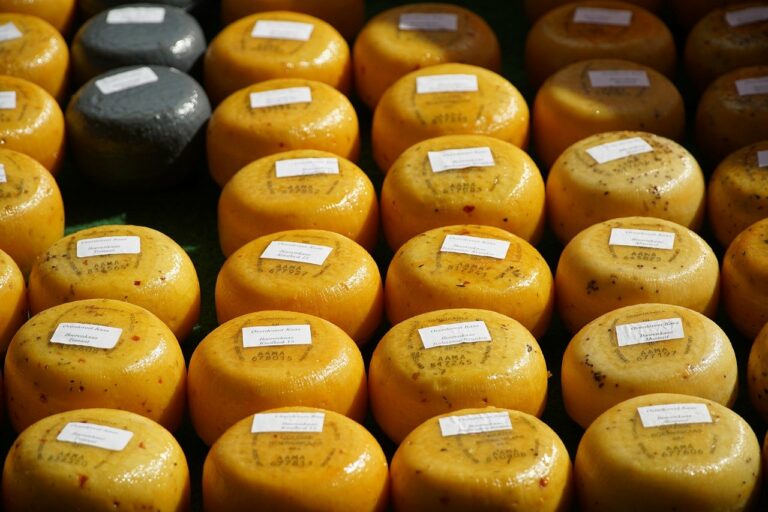Understanding the Science Behind Fast Food Flavor Enhancers
11xplay, india 24 bet login registration, skyiplay:Hydroponics is a method of growing plants without soil, using nutrient-rich water instead. This technique has been gaining popularity in various industries, including agriculture and horticulture. But have you ever considered the potential of hydroponics in egg feed production?
In this blog post, we will explore how hydroponics can revolutionize the way we produce feed for egg-laying hens. By utilizing this innovative farming method, we can improve efficiency, reduce costs, and ensure the sustainability of egg production for years to come.
Why Hydroponics for Egg Feed Production?
Traditional methods of growing feed for egg-laying hens often rely on soil-based agriculture. While this approach has been effective for many years, it comes with its challenges. Soil quality can vary, leading to inconsistencies in crop yields. Additionally, traditional farming methods require large amounts of water and land, contributing to environmental degradation.
Hydroponics offers a solution to these challenges. By growing feed for egg-laying hens in a controlled environment, we can optimize nutrient delivery, water usage, and space utilization. This means higher crop yields, lower costs, and a reduced environmental impact. With hydroponics, we can ensure a steady and reliable food supply for our feathered friends.
Benefits of Hydroponics in Egg Feed Production
1. Efficient Use of Resources: Hydroponic systems use up to 90% less water compared to traditional farming methods. This means we can produce more feed for egg-laying hens using fewer resources.
2. Space Optimization: Hydroponic systems can be set up vertically, maximizing the use of limited space. This is especially beneficial for urban areas where land is scarce.
3. Nutrient-Rich Feed: By carefully controlling the nutrient balance in the water, we can ensure that the feed grown hydroponically is packed with essential nutrients for the hens.
4. Year-Round Production: Hydroponic systems are not dependent on seasonal changes. This means we can produce feed for egg-laying hens year-round, ensuring a consistent food supply.
5. Reduced Environmental Impact: Hydroponics eliminates the need for chemical fertilizers and pesticides, reducing pollution and protecting the environment.
6. Cost Savings: While the initial investment in hydroponic systems may be higher, the long-term savings in water, labor, and land costs make it a cost-effective option for egg feed production.
Challenges of Hydroponics in Egg Feed Production
1. Initial Investment: Setting up a hydroponic system can be costly, requiring investment in equipment, infrastructure, and technology.
2. Technical Knowledge: Hydroponics requires a certain level of expertise to maintain and operate the system effectively.
3. Energy Consumption: Hydroponic systems rely on artificial lighting and heating, consuming more energy compared to traditional farming methods.
4. Pest Control: Without the use of chemical pesticides, hydroponic systems may be more susceptible to pest infestations, requiring alternative pest control measures.
5. Water Quality: Maintaining water quality in a hydroponic system is essential for the health of the plants. Poor water quality can lead to nutrient deficiencies and plant diseases.
6. Regulatory Compliance: Adhering to regulations and standards for food safety and animal feed production can be challenging when using hydroponics.
Implementing Hydroponics in Egg Feed Production
To successfully integrate hydroponics into egg feed production, farmers must consider the following steps:
1. Conduct Research: Learn about hydroponic systems and their requirements for growing feed crops.
2. Plan and Design: Determine the type of hydroponic system that best suits your needs and design a layout for optimal production.
3. Invest in Equipment: Purchase the necessary equipment, such as grow lights, nutrient solutions, and monitoring tools.
4. Acquire Knowledge: Attend training sessions or workshops to gain a better understanding of hydroponic farming techniques.
5. Start Small: Begin with a small-scale hydroponic setup to familiarize yourself with the process before scaling up production.
6. Monitor and Adjust: Continuously monitor the hydroponic system, adjusting nutrient levels, water flow, and lighting as needed to ensure optimal plant growth.
7. Harvest and Feed: Once the feed crops are ready for harvest, feed them to your egg-laying hens and observe their response to the new feed source.
FAQs
Q: Can hydroponically grown feed provide all the necessary nutrients for egg-laying hens?
A: Yes, hydroponically grown feed can be tailored to provide the essential nutrients required for healthy egg production.
Q: How long does it take to set up a hydroponic system for egg feed production?
A: The time required to set up a hydroponic system depends on the scale and complexity of the system. Small-scale setups can be operational within a few weeks, while larger systems may take several months to install.
Q: Are there any risks associated with using hydroponically grown feed for egg-laying hens?
A: As with any new farming method, there may be risks involved in using hydroponically grown feed. It is essential to monitor plant health, water quality, and nutrient levels to ensure the feed is safe for consumption.
Q: Can hydroponics be used to grow other types of feed for livestock?
A: Yes, hydroponics can be utilized to grow feed for various types of livestock, including poultry, cattle, and pigs. The key is to tailor the nutrient solution to meet the specific nutritional needs of each animal.
Q: What are the long-term benefits of implementing hydroponics in egg feed production?
A: Long-term benefits of using hydroponics in egg feed production include increased efficiency, reduced environmental impact, cost savings, and a reliable food supply for egg-laying hens.
In conclusion, the potential of hydroponics in egg feed production is vast. By harnessing this innovative farming method, we can revolutionize the way we grow feed for egg-laying hens, ensuring a sustainable and efficient food supply for years to come. While there are challenges to overcome, the benefits of hydroponics far outweigh the drawbacks. So why not give hydroponics a try and see the positive impact it can have on your egg production operation?






